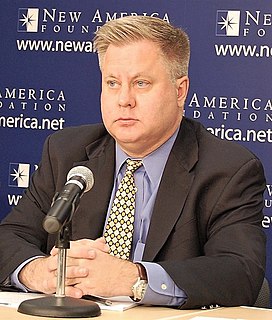A Quote by Thomas Malthus
The doctrine of population has been conspicuously absent, not because I doubt in the least its truth and vast importance, but because it forms no part of the direct problem of economics.
Related Quotes
How much atonement is enough? The bombing must be allowed as at least part-payment: those of our young people who are concerned about the moral problem posed by the Allied air offensive should at least consider the moral problem that would have been posed if the German civilian population had not suffered at all.
PLEASURE and pain are undoubtedly the ultimate objects of the calculus of economics. To satisfy our wants to the utmost with the least effort - to procure the greatest amount of what is desirable at the expense of the least that is undesirable - in other words, to maximize pleasure, is the problem of economics.
With the old economics destroyed, organizational forms perfected for industrial production have to be replaced with structures optimized for digital data. It makes increasingly less sense even to talk about a publishing industry, because the core problem publishing solves — the incredible difficulty, complexity, and expense of making something available to the public — has stopped being a problem.
Because I am a part of the Big Picture, I do matter and substantially so. Because I am only a part, however, I am rightly situated off to stage right—and happily so. What freedom there is in such truth! We are inherently important and included, yet not burdened with manufacturing or sustaining that private importance. Our dignity is given by God, and we are freed from ourselves!
My mother and my father taught me to look at the actual problem, not the face of it, not the veneer of it. So for me, I was never - I was impressed that it - racially, I was impressed, right, but now in America it's about economics, and it's been about economics, and honestly, everything's been about economics since I don't want to say the beginning of time, but it's been about economics for a long while.
I do sense, as compared with let's say the early '50s, there's somewhat more of a careerism. I don't think it's anything special to economics; it's equally true with physics or biology. A graduate education has become a more career-oriented thing, and part of that is because of the need for funding. In fact, that's a much worse problem in the natural sciences than it is in economics. So you can't even do your work in the natural sciences, particularly, and even to some extent in economics, without funding.
I don't think the possibility for beauty can be foreclosed, because beauty can take so many forms. There is beauty that arises from the unexpected, when our familiar perspectives are thrown off balance. There is also the beauty that paradoxically comes out of the tragic, that emerges because we are reminded of what is no longer there, that becomes powerful because of what is absent.
The population becomes the internal enemy. Any sign of life, of protest, or even mere doubt, is a dangerous challenge from the standpoint of military doctrine and national security. So complicated mechanisms of prevention adn punishment have been developed ... To operate effectively, the repression must appear arbitrary. Apart from breathing, any human activity can constitute a crime ... State terrorism aims to paralyze the population with fear.
In the nineteenth century, in part because a ton of American men moved west, in part because of the Civil War, and in part because of trepidation about marriage, which was then a very confining institution, there was a big population of women - mostly middle-class white women on the East Coast - who didn't marry.
In view of the importance of philanthropy in our society, it is surprising that so little attention has been given to it by economic or social theorists. In economic theory, especially, the subject is almost completely ignored. This is not, I think, because economists regard mankind as basically selfish or even because economic man is supposed to act only in his self-interest; it is rather because economics has essentially grown up around the phenomenon of exchange and its theoretical structure rests heavily on this process.
There is no doubt that healthy-mindedness is inadequate as a philosophical doctrine, because the evil facts which it refuses positively to account for are a genuine portion of reality; and they may after all be the best key to life's significance, and possibly the only openers of our eyes to the deepest levels of truth.
Do you call it doubting to write down on a piece of paper that you doubt? If so, doubt has nothing to do with any serious business. But do not make believe; if pedantry has not eaten all the reality out of you, recognize, as you must, that there is much that you do not doubt, in the least. Now that which you do not at all doubt, you must and do regard as infallible, absolute truth.





































